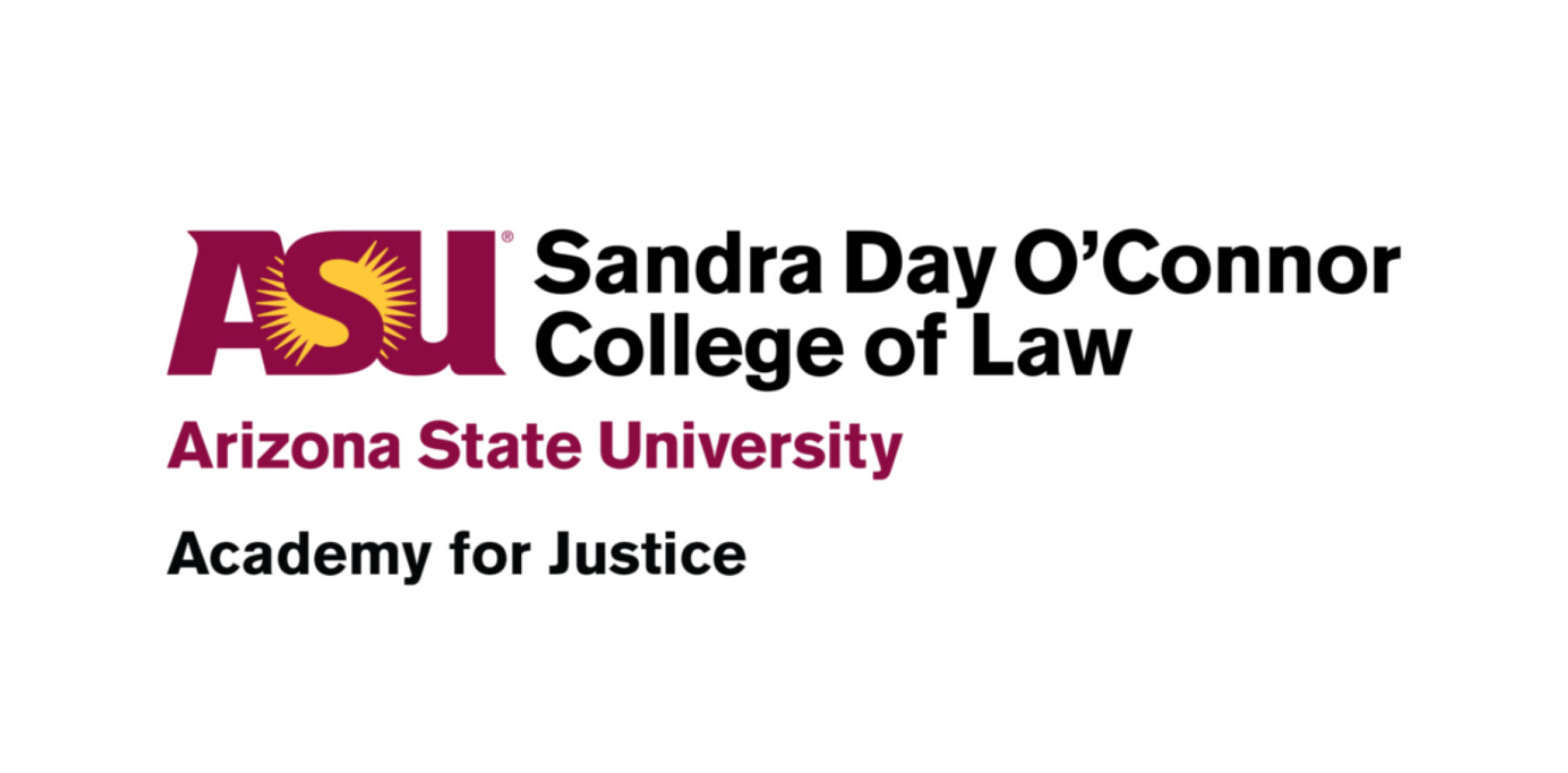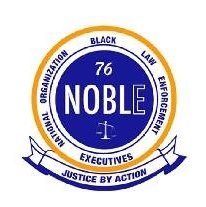
Policing and Homelessness: A Working Roundtable Discussion
Arizona State University, Phoenix, AZ
Thursday, September 15, 2022
The Academy for Justice at the Sandra Day O’Connor College of Law at Arizona State University—in collaboration with the National Organization of Black Law Enforcement Executives (NOBLE)—hosted a roundtable discussion and dinner at the College of Law to facilitate the exchange of ideas and innovations in the overlapping fields of policing and homelessness. A panel of experts examined critical issues within these fields, including the overcriminalization of homelessness, the potential for rapid rehousing, the provision of essential services (e.g., water and sanitation), and the successes and failures of strategies currently employed around the nation, all with an emphasis on exploring alternatives to criminal law enforcement in responding to homelessness.
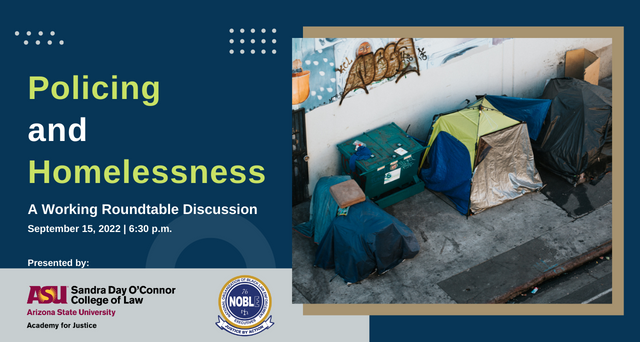
Sponsors
The Academy for Justice was established at the Sandra Day O’Connor College of Law at Arizona State University in July 2018. Its mission is to bridge the gap between academia and on-the-ground criminal justice reform by making scholarly research and ideas accessible to policymakers, stakeholders, journalists, and the public. As a scholarly collective, our approach to criminal justice reform is interdisciplinary, pragmatic, and non-partisan.
The National Organization of Black Law Enforcement Executives (NOBLE) serves as the conscience of law enforcement by being committed to justice by action. Founded in September 1976 during a three-day symposium to address crime in low-income urban areas, NOBLE is currently comprised of 59 chapters in six regions throughout the United States with members in Canada, the Caribbean, the United Kingdom, and several countries in Africa. Whether members are engaged in a food or clothing drive, presenting the Law and Your Community, reading to children, awarding scholarships, or talking with young people about safety—be it traffic safety, gun safety, internet safety, bullying or HIV/AIDS prevention—NOBLE cares!
Event Speakers
Opening Remarks
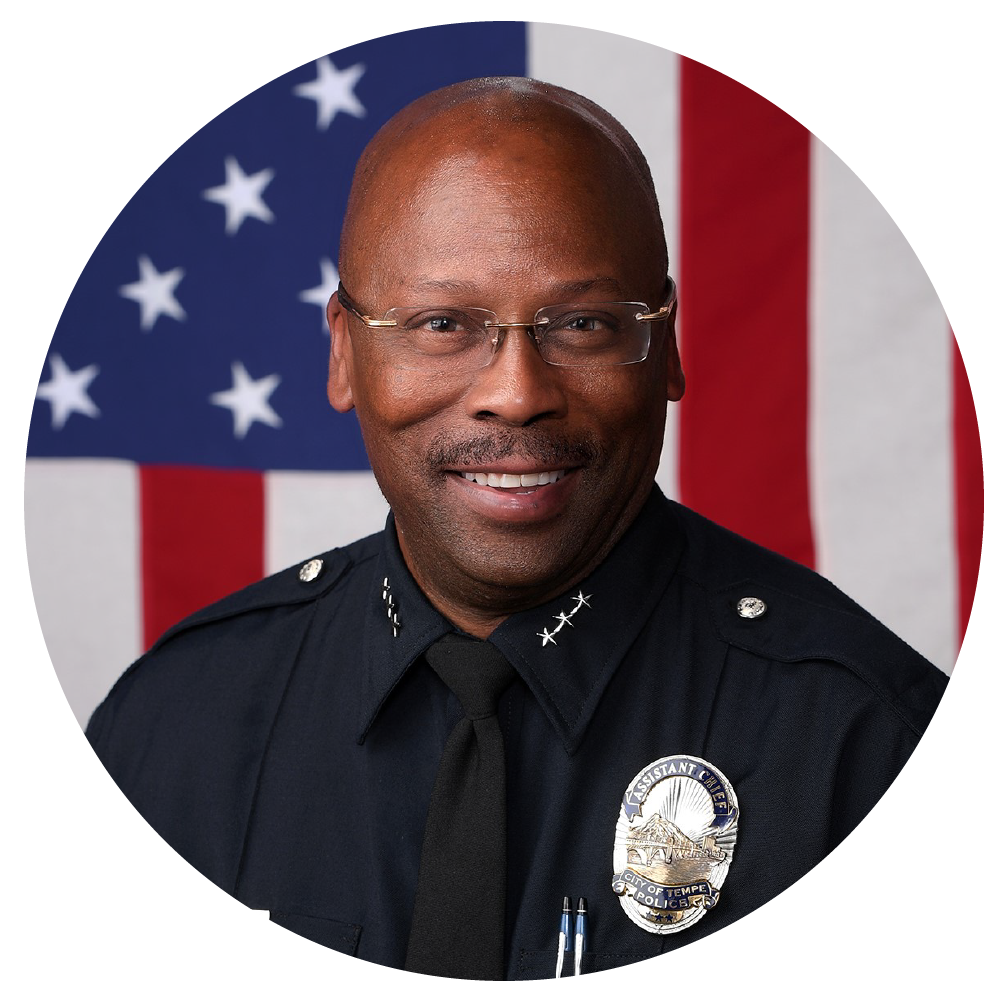
Andre C. Anderson
Executive Assistant Police Chief, Tempe Arizona Police Department
Andre C. Anderson is an Executive Assistant Police Chief with the Tempe Arizona Police Department. As a police leader, Andre has served in law enforcement for more than 35 years, combining two years of service from the Arizona Department of Corrections. Andre has served in a leadership role for over 22 years and has been fortunate to serve over every leadership command of a modern-day police department. He has served in every rank, from an officer to detective to Executive Deputy Chief, Executive Assistant Chief and Interim Police Chief. He holds a Masters Degree from Northern Arizona in Education and Leadership. His career includes, but is not limited to, leading the Glendale Police Department Criminal Investigations Division’s Homicide and all investigative Units, the Special Events Division responsible for national and local events, include working with the NFL Arizona Cardinals leadership, Phoenix Coyotes, the NCAA Final Four, major soccer events, and nationally recognized entertainer, SWAT, Traffic, Bombs, and Emergency Management. He has led community policing and community engagement squads and has taught and traveled abroad, helping organizations learn the concepts of community policing.
Andre C. Anderson served as the Special Assistant to the National President of the National Organization of Black Law Enforcement Executives (NOBLE). He was also the NOBLE Region VI President and local Arizona President. With NOBLE, he was tasked with developing a response to engage national community dialogue and working with others to usher in methods designed to build trust and legitimacy from lessons learned from his stent as the Interim Police Chief in Ferguson MO, working the DOJ and incorporating the President’s Task Force on 21st Century Policing. Under President Obama’s administration, the United States President’s office called upon him and the NOBLE President to travel to Charlotte NC to serve with others to ease tension stemming from protest.
Andre is most known for serving as Executive Deputy Police Chief of Rochester, New York, and the Interim Police Chief in Ferguson, Missouri, both police departments facing several national concerns after the wake of the Daniel Prude death and the Mike Brown JR shooting coined as the new ground zero and civil rights destination of the nation. During his tenure at both locations, he led successful conclusions to civil unrest, which eased tension, created better relationships in the community, introduced and led modern-day evidence-based community policing, and was the initial lead policing expert to negotiate with the Department of Justice Consent Decree levied as a “Pattern or Practice of Discriminatory Policing.” For his role in Ferguson, he was inducted into the National Law Enforcement Museum, Washington DC
Assistant Chief Anderson strongly believes that “identifying dedicated police professionals who exemplify the organization’s image while remaining committed to community policing and the organization’s values are the keys to success.”
Co-moderators
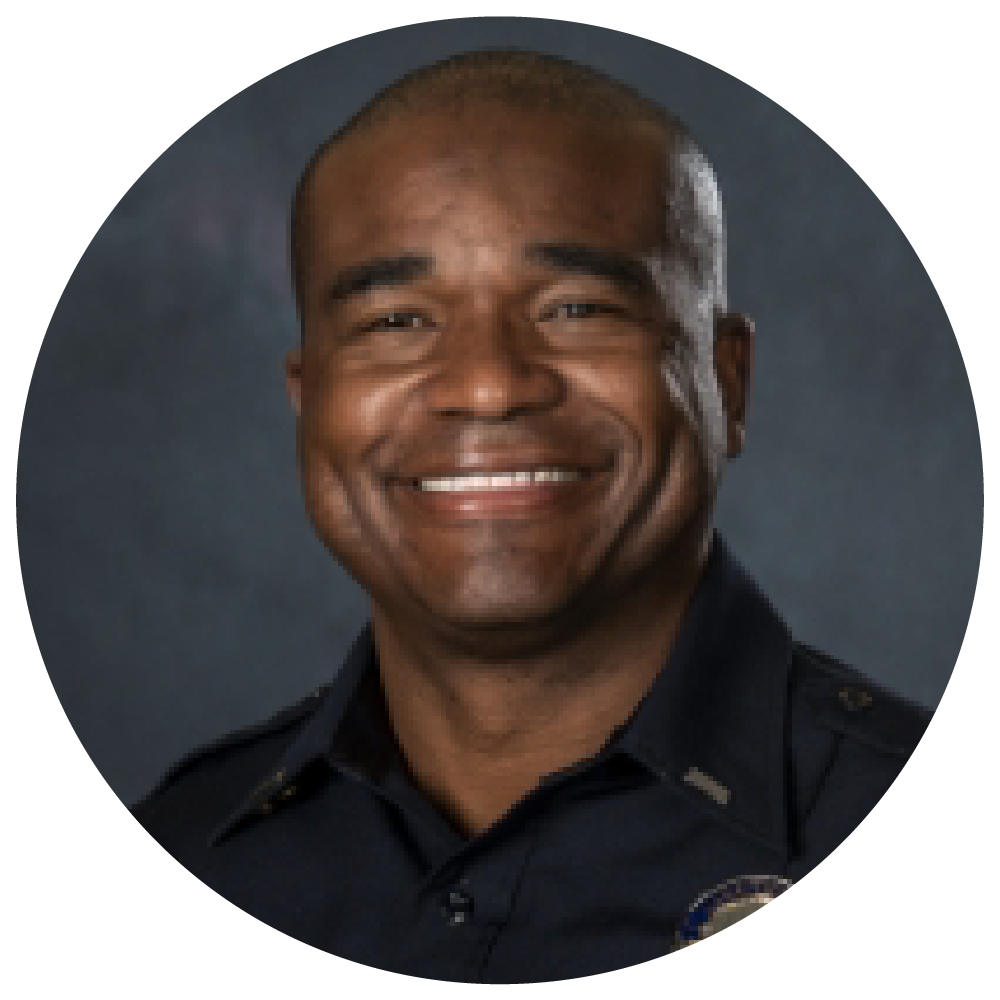
Rashidi Johnson
Lieutenant, Tempe Police Department
Lt. Johnson has been with the Tempe Police Department for 20 years and has served with humility in many capacities. Lt. Johnson served as a patrol officer, where he responded to high-risk calls for service, investigated crimes of violence, property crimes, narcotics, and interacted with the community regarding concerns and outreach. Lt. Johnson served in the downtown district as a bike officer, where he investigated aggravated assaults, disorderly conduct, and crimes related to alcohol. Lt. Johnson also served in the Special Investigation Bureau as an undercover detective. He conducted narcotics investigations, VICE investigations, human trafficking, and large-scale drug trafficking investigations that included Maricopa County T-3 wiretaps. Lt. Johnson also served ten years on the SWAT team, where he responded to barricades, search warrants, and fugitive apprehension operations.
Lt. Johnson was promoted to Sergeant in 2013, where he supervised teams with the objective that they provide quality service to the community. Lt. Johnson served in Internal Affairs as a Sergeant, where he was responsible for ensuring transparency and accountability within the Tempe Police Department. In 2020 Lt. Johnson was promoted to the rank of Lieutenant where he served as the watch commander in the Field Operations Division, ensuring the community received quality service by using the best practices approach to operational readiness. Lt. Johnson served in the training and hiring unit where he was responsible for hiring, recruitment, retention, and ensuring best police practices. Currently, Lt. Johnson serves in Central Bureau where he is responsible for downtown Tempe.
Lt. Johnson is married with two kids, has two dogs, is grounded by his faith in Christ. Lt. Johnson is the Arizona Chapter President of the National Organization of Black Law Enforcement Executive (NOBLE); he has a bachelor’s in Political Science and a Master’s in Organizational Leadership.
Erik Luna
Amelia D. Lewis Professor of Constitutional & Criminal Law; Faculty Director of the Academy for Justice, Sandra Day O’Connor College of Law at Arizona State University
Professor Luna teaches and writes primarily in the areas of criminal law and criminal procedure. Luna has received two Fulbright awards. In 2000, he served as the senior Fulbright Scholar to New Zealand at Victoria University Law School (Wellington, NZ). In 2016-17, he was the Fulbright Distinguished Chair at the University of Birmingham (Birmingham, UK). Luna has also been a visiting scholar with the Max Planck Institute for Foreign and International Criminal Law (Freiburg, DE), a visiting professor with the Cuban Society of Penal Sciences (Havana, CU), a visiting professional in the Office of the Prosecutor of the International Criminal Court (The Hague, NL), and a research fellow with the Alexander von Humboldt Foundation (Bonn, DE). Prior to coming to ASU, Luna was the Sydney & Frances Lewis Professor of Law at Washington and Lee University, and before that, he was the Hugh B. Brown Chair in Law at the University of Utah. Luna is a member of the American Law Institute and an adjunct scholar with the Cato Institute. He graduated summa cum laude from the University of Southern California and received his J.D. with honors from Stanford Law School. Upon graduation, Luna was a prosecutor in the San Diego District Attorney’s Office and a fellow and lecturer at the University of Chicago Law School.
Expert panel
Joanna Lucio
Sr. Associate Dean of Academic and Student Affairs
During her tenure at ASU, Joanna Lucio has been integrally involved in hands-on learning opportunities and promoting student success through undergraduate research, curriculum development.
She is associate professor in the School of Public Affairs, and is currently serving as Senior Associate Dean of Watts College.
Lucio joined ASU in 2006. Her research explores how urban governance, planning and policy impacts diverse groups in society. She works to advance the rights of disenfranchised residents through the evaluation and analysis of housing and neighborhood policies and programs, particularly for low-income residents.
Ben McJunkin
Associate Professor of Law and Associate Deputy Director of the Academy for Justice, Affiliated Faculty Member with the School of Criminology and Criminal Justice.
Professor McJunkin currently teaches and writes on topics in criminal law and criminal procedure. His scholarship focuses primarily on the criminalization of sexual violence and the policing of marginalized communities. His legal research connects doctrine with broader themes in moral philosophy and gender theory. His work in substantive criminal law routinely questions how the legal regulation of sex and sexuality shapes, and is shaped by, societal narratives about gender identity and sexual injury. Meanwhile, his work in constitutional criminal procedure questions the prevailing conceptions of privacy, which tend to be overly individualistic and hostile to the values of mutuality and interdependence. Taken together, his scholarship critiques legal liberalism and emphasizes the criminal law’s expressive character—its ability to communicate social values and establish duties intended to guide conduct.

Ana Rausch
Vice President of Program Operations, Coalition for the Homeless
Ana Rausch has more than 22 years of experience in project management and system change implementation. Ana currently serves as Vice President of Program Operations for the Coalition for the Homeless, the lead agency for the TX-700 Continuum of Care (aka The Way Home). In this role, she leads the agency’s HMIS & Program Ops Teams and has led in the development and operations management of The Way Home’s Coordinated Access system. In addition, Ana has spearheaded the revised and improved methodology used during the CoC’s Homeless Count. Ana is originally from Brazil and lives in the northwest Houston area. She has presented at conferences at both state and national levels and holds
both a bachelor’s and master’s degree in psychology.

Terry Skolnik
Assistant Professor and Co-director of the uOttawa Public Law Centre, University of Ottawa
Terry Skolnik is an associate professor (tenured) at the University of Ottawa’s Faculty of Law and Co-Director of the uOttawa Public Law Centre. His primary research interests are criminal law and procedure, legal philosophy, constitutional law, poverty law, and the intersection between those fields. He was a visiting research fellow at Tel Aviv University’s Faculty of Law (2021) and was an affiliated scholar at NYU’s Center for Human Rights and Global Justice (2018-2019). He was awarded the faculty’s distinguished teaching prize for 2020-2021.
Prior to joining the Faculty, he served as a law clerk for the Honorable Justice Russell Brown at the Supreme Court of Canada. Prior to academia, he worked as a police officer with the Montreal Police Service.
Michael Scott
Clinical Professor and Director of the Center for Problem-Orientated Policing, School of Criminology & Criminal Justice (CCJ) at Arizona State University
Michael Scott is a clinical professor at Arizona State University’s School of Criminology and Criminal Justice at Arizona State University and the director of the Center for Problem-Oriented Policing, a research center that produces and disseminates information about how police can effectively and fairly address specific public-safety problems. Scott was formerly a clinical professor at the University of Wisconsin Law School; chief of police in Lauderhill, Florida; special assistant to the chief of the St. Louis, Missouri, Metropolitan Police Department; director of administration of the Fort Pierce, Florida, Police Department; a senior researcher at the Police Executive Research Forum (PERF) in Washington, D.C.; legal assistant to the police commissioner of the New York City Police Department; and a police officer in the Madison, Wisconsin, Police Department. In 1996, he received PERF’s Gary P. Hayes Award for innovation and leadership in policing.

Cody W. Telep
Associate Professor and Associate Director, School of Criminology and Criminal Justice at Arizona State University
Cody Telep’s Ph.D. is in Criminology, Law and Society from George Mason University, where he worked in the Center for Evidence-Based Crime Policy. His research interests include the impact of police practices on crime and disorder, assessing the relationship between police activities and perceptions of legitimacy, understanding how to advance the use of evidence-based policies and practices in policing and criminal justice, and using experimental methodologies in evaluation research. He recently completed an assessment of a multi-agency approach to addressing homelessness led by the Indio Police Department in Indio, CA.
Resources
Statutes and Ordinances
Criminal littering or polluting:
Illegal dumping:
Obstructing a highway or other public thoroughfare:
Obstructing streets, sidewalks, or other public grounds:
Lie down, place feet on public transit vehicle seats:
Camping:
Third-Degree Trespass (real property):
Second-Degree Trespass (nonresidential structure or fenced commercial yard):
First-Degree Trespass (residential structure, fenced residential yard, critical public service facility):
Soliciting employment, business, or contributions:
Aggressive solicitation:
Public sexual indecency:
Indecent exposure:
Public urination / defecation:
Prohibition of certain shopping cart activity:
Relevant case law
Lavan v. City of Los Angeles, 693 F.3d 1022 (9th Cir. 2012)
Finding that the Fourth Amendment protects the unabandoned property of homeless residents on public property.
Speet v. Schuette, 726 F.3d 867 (6th Cir. 2013)
Holding that ordinance prohibiting begging in a public place violated the First Amendment.
Desertrain v. City of Los Angeles, 754 F.3d 1147 (9th Cir. 2014)
Holding that ordinance prohibiting living in a vehicle was void for vagueness under the Fourteenth Amendment’s due process clause.
Martin v. City of Boise, 902 F.3d 1031 (9th Cir. 2018)
Holding that ordinance prohibiting camping on public property violated the Eighth Amendment when shelter was not reasonably available.
Fort Lauderdale Food Not Bombs v. City of Fort Lauderdale, 901 F.3d 1235 (11th Cir. 2018)
Finding that sharing food with homeless residents, in violation of city ordinance, was expressive conduct protected by the First Amendment.
Secondary sources
Housing not Handcuffs 2019: Ending the Criminalization of Homelessness in U.S. Cities, National Law Center on Homelessness & Poverty
Searching Out Solutions: Constructive Alternatives to the Criminalization of Homelessness, United State Interagency Council on Homelessness
The 2020 Annual Homeless Assessment Report (AHAR) to Congress, The U.S. Department of Housing and Urban Development
Problem oriented policing guides
- Missing Persons
- Panhandling
- Pedestrian Injuries and Fatalities
- People with Mental Illness, 2nd Ed.
- Shoplifting, 2nd Edition
- Stolen Goods Markets
- Street Prostitution, 2nd Edition
- Theft of Scrap Metal
- Thefts of and from Cars in Parking Facilities
- Thefts of and from Cars on Residential Streets and Driveways
Problem statement
Click below to read the problem statement for the roundtable which will help guide the discussion surrounding the overcriminalization of homelessness and the possibility of alternative solutions.”
